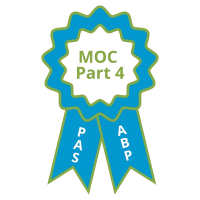Newborn Care Works in Progress
Session: Newborn Care Works in Progress
WIP 61 - Evaluating and Improving Parental Readiness for Discharge from the Neonatal Intensive Care Unit (NICU) for Late Preterm Infants through Parent Education
Monday, April 28, 2025
7:00am - 9:15am HST
Publication Number: WIP 61.7591
Fatima Toor, Cohen Children's Medical Center, New Hyde Park, NY, United States; Caitlin Poore, Cohen Children's Medical Center, Sayville, NY, United States; Carly Simeone, Cohen Children's Medical Center, New Hyde Park, NY, United States; Forouhideh Peyvandi, Cohen Children's Medical Center, Glen Cove, NY, United States; Joanna Fishbein, Northwell Health, Plainview, NY, United States; Katherine P. Sullivan, Cohen Children's Medical Center, New Hyde Park, NY, United States

Fatima Toor, MD (she/her/hers)
Fellow
Cohen Children's Medical Center
New Hyde Park, New York, United States
WIP Poster Presenter(s)
Background: Various studies have examined discharge practices from the neonatal intensive care unit (NICU), but none have focused on late preterm infants. This population is particularly vulnerable due to relatively short hospital stays. However, compared to full term infants, they have increased morbidity and cost burden during the first year of life and parents can have considerable anxiety in bringing them home.
Objective: To evaluate parental discharge readiness and healthcare utilization after the implementation of a NICU discharge passport and class for late preterm infants.
Design/Methods: This study is IRB approved, with enrollment ongoing. Parents and discharging nurses of infants born at 33-36 weeks gestational age from a Level IV NICU were included. Control group parents received standard discharge practices. Intervention group parents received either or both a discharge passport and discharge class, in addition to standard practices. The discharge passport included a summary of key discharge instructions and anticipatory guidance. The discharge class reviewed care for the first month of life. Prior to discharge, parents and discharging nurses completed a 10-question Likert-scale survey (strongly agree to strongly disagree) on parental discharge readiness. One month after discharge, parents completed a telephone survey that included the same questions on discharge readiness in addition to healthcare utilization, as well as qualitative feedback on NICU discharge education. Parental confidence and discharge readiness was interpreted positively if parents indicated strongly agree or agree about their ability to care for their baby at home and if parents indicated strongly agree or agree in ≥ 7/10 questions regarding discharge readiness. Control group data has been obtained, with intervention group data currently being collected. Anticipated study data collection completion is by December 2024, followed by data analysis comparing control and intervention outcomes by January 2025.


